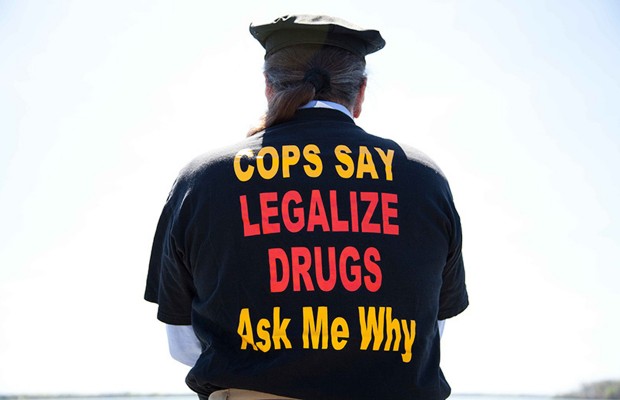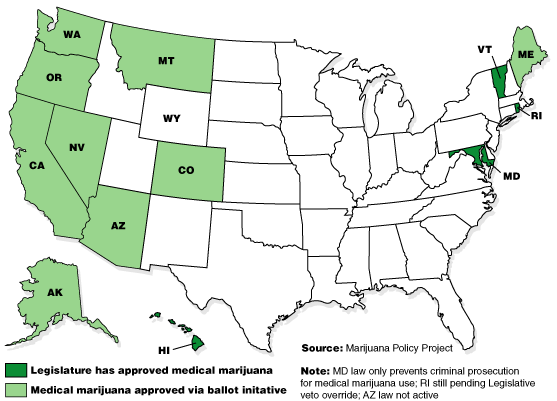You may not know who Arjan Roskam is, but you’ve probably smoked his ganja. Arjan’s been breeding some of the most famous marijuana strains in the entire world—like White Widow, Super Silver Haze, among others—for over 20 years.
He opened his first “coffee shop” in 1992 in Amsterdam and has since crafted his skills into a market-savvy empire known as Green House Seed Company, which rakes in millions of dollars a year.
He’s won 38 Cannabis Cups and dubbed himself the King of Cannabis.
In this well-researched VICE doc, the crew joins Arjan in Colombia to look for three of the country’s rarest types of weed, strains that have remained genetically pure for decades. They trudge up mountains and crisscross military checkpoints in the country’s still-violent south, and then head north to the breathtaking Caribbean coast. As the dominoes of criminalization fall throughout the world, Arjan is positioned to be at the forefront of the legitimate international seed trade.
About the Author
Michael is a journalist and filmmaker. His award-winning documentary, Sleeping with Siri is playing film festivals across the country. Stusser runs TechTimeout campaigns in high schools across the country, asking teenagers to give up their digital devices (for a little while) in order to find balance, and perhaps even make eye-contact with their parents.You Might also like
-
GrassIsNotGreener Is a Downer, Man
At HigherGround, our responsibility is to show you all sides of the debate in and around the legalization of marijuana (aka Prohibition), and let you decide where you stand. The following is an ad from a coalition who opposed the recent editorial decision at the New Times Editorial Board which endorsed the legalization movement. Have a read, and we’ll be following up with additional thoughts and perspectives.(From the Washington Post)
A coalition of groups is running a full-page advertisement in the New York Times this weekend, advocating against the maturing movement to legalize marijuana.The ad comes in response to a New York Times editorial series launched last weekend arguing for an end to marijuana prohibition. In it, the newspaper’s editorial board advocated for an end to the federal ban on the drug. The ad, pictured below, features a businessman with the pasted-on head of a hippie, a visual metaphor for what the groups warn is the disconnected perception and reality when it comes to legalization.
“The legalization of marijuana means ushering in an entirely new group of corporations whose primary source of revenue is a highly habit-forming product,” the ad reads. “Sounds a lot like another industry we just put in its place. Many facts are being ignored by this and other news organizations. Go to GrasslsNotGreener.com to see why so many major medical associations oppose marijuana legalization.”
The website, which contains resources about the dangers of marijuana, is affiliated with Project SAM, which stands for Smart Approaches to Marijuana. The nonprofit was co-founded by former congressman and former head of the Democratic Congressional Campaign Committee Patrick Kennedy and former Obama administration drug policy adviser professor Kevin Sabet. It advocates against legalization, but in favor of dropping mandatory minimum sentences and removing criminal penalties while expunging records for low-level users of the drug, and pushes for better access to treatment, education and prevention. The group contends that legalization risks the creation of a predatory industry
“In the marijuana business, the values of the flower children have been quickly replaced by the values of Wall St. power brokers,” Sabet said in a statement. “We’re on the brink of creating the next Big Tobacco. We feel like this is an important message most Americans have not considered.”
The implementation of legalization by Colorado officials–some of them at least initially opposed to it–has been described as a success, though it’s too early to assess the public health impact of the law itself. In Washington, the only other state to also legalize pot, the drug went on sale this month. Legalization is on the November ballot in Oregon and Alaska.
The coalition behind the new website includes:
The American Society of Addiction Medicine, a group that boasts more than 3,000 addiction physician and professional members
The National Association of Drug Court Professionals, a nonprofit whose members include judges, attorneys and clinical specialists
National Families in Action, a group dedicated to getting state laws passed to prevent marketing of drugs and drug use to children.
Parents Opposed to Pot.(Thanks to Niraj Chokshi for this story. Niraj also reports for GovBeat, The Post’s state and local policy blog.)
http://www.washingtonpost.com/blogs/govbeat/wp/2014/08/02/coalition-runs-full-page-new-york-times-ad-to-dispute-pro-marijuana-editorial/
-
Even Cops Say It’s Time to Legalize Drugs
When thousands of police veterans agree it’s time to end the War on Drugs and legalize marijuana, you know it’s time. Our interview with Law Enforcement Against Prohibition (LEAP) staff Neill Franklin (Exec. Dir.) and Diane Goldstein (Sec.).
-
THE TIDE HAS TURNED
Great article from Josh Voorhees, our favorite SLATE contributor
Courtesy of Slate –
An overwhelming majority of Americans believe that the legalization of marijuana is inevitable. We’ll soon find out if they’re right.
Voters in Alaska and possibly Oregon will decide this November whether their states will join Colorado and Washington in legalizing the commercial sale and recreational use of pot. Similar initiatives are at varying stages in more than a half-dozen other states—Nevada, Arizona, and California among them—where advocates are looking toward 2016, when they hope the presidential election will turn out enough liberals to push those efforts across the finish line. All told, more than 1 in 5 Americans live in states where marijuana use has a legitimate chance to become legal between now and when President Obama leaves office.
It’s not just at the ballot box where the pro-pot crowd is putting points on the board. Lawmakers in at least 40 states have eased at least some drug laws since 2009, according to a recent Pew Research Center analysis. According to the Marijuana Policy Project, proposals to treat pot like alcohol have been introduced in 18 states and the District of Columbia this year alone. Meanwhile, 16 states have already decriminalized marijuana, according to the pro-pot group NORML—Maryland will become the 17th in October. In large swaths of the country getting caught with a small amount of weed at a concert is now roughly the same as getting a speeding ticket on the way to the show. While not leading the charge, the Obama administration is allowing states the chance to experiment. The feds have given a qualified greenlight to Colorado and Washington to dabble in recreational weed, and have even taken small steps to encourage banks to do business with those companies involved in the quasi-legal pot trade.
Given this momentum, it’s not difficult to see why 75 percent of Americans—including a majority of both those who support and those who oppose legalization—told Pew pollsters in February that they now believe it’s a matter of when, not if, the nation’s eight-decade-long prohibition of pot ends. The question is: Are they right?
This moment isn’t the first time that the United States appeared on the cusp of legalization. After steep gains in popular support during the early and mid-’70s, support for legalization climbed to 30 percent in 1978, only to plummet back into the teens the following decade as Baby Boomers became parents and Jimmy Carter’s pro-decriminalization administration gave way to Ronald Reagan’s war on drugs. “This was supposed to be inevitable then,” says Kevin Sabet, a legalization opponent and former Obama drug policy adviser who helped found Smart Approaches to Marijuana after leaving the administration. “No one could have predicted that [support]would have been wiped away so quickly.”
The pro-pot crowd isn’t ready to declare victory either. Ethan Nadelmann, who heads the Drug Policy Alliance and has spent decades in the reform trenches, says he’s of two minds when he thinks about the future. “On the one hand we have this extraordinary momentum,” he says. “On the other, public opinion can be fickle and marijuana is not going to legalize itself.”
While such caution is reasonable, it’s obvious that things are different now than they were 40 years ago, when then-record levels of support for legalization were good for little more than a vocal minority. It wasn’t until 2013 that a majority of Americans said for the first time that they supported making it legal to use weed. Support now stands at 54 percent in the most recent Pew poll, 23 points above where the legalization effort stood as recently as 2000 and 13 points higher than in 2010. Even those fickle Baby Boomers are back on board, with 52 percent now in favor—5 points more than that generation’s 1970s-era high. Meanwhile, each passing year brings us an electorate more familiar and less fearful of marijuana.
It’s not just a matter of shifting demographics. There’s also the fact that voters have increasingly gotten an up-close look at state-legal weed in the form of medical marijuana. Twenty-one states and the District of Columbia have legalized pot for medicinal purposes to varying degrees since California became the first to do so almost two decades ago. Voters in Florida are set to decide later this year whether they want to join that group, something that would give advocates their first voter-referendum victory in the South. (Florida law requires at least 60 percent support, however, making it a heavier lift than it has been in other states.)
Some pot opponents warn that medical marijuana serves as a Trojan Horse for the larger legalization movement, but that argument relies on Americans believing that the dangers of possibly legalizing recreational weed tomorrow outweigh the benefits of actually prescribing it to cancer patients and others in need today—a viewpoint shared by a diminishing number of Americans. While 54 percent of respondents told Pew they thought “the use of marijuana” should be made legal, things were more complicatedwhen the question changed from a simple yes-or-no to one where people were asked to pick between three choices: 39 percent said that pot “should be legal for personal use”; 44 percent said it “should be legal only for medicinal use”; and 16 percent said it “should not be legal.” Still, the answers to the original question—“Do you think the use of marijuana should be made legal, or not?”—suggests in an all-or-nothing environment, most Americans choose the former.
Regardless, medical marijuana has already served as stepping-stone for states that have or are considering regulating the sale and use of recreational pot. In Colorado, where retail stores opened their doors on New Year’s Day, advocates were able to point to the state’s tightly regulated medical market, approved by voters in 2000, to allay fears that the state couldn’t regulate a marijuana market from scratch. To date, Colorado regulators have delivered on those promises, building a relatively hiccup-free commercial market on the back of the medical marijuana industry. (Things in Washington, where the medical market is unregulated, have proved a good deal more complicated. Residents are still waiting for the first retail stores to open 19 months since the 2012 vote.)
Medical marijuana has become so relatively uncontroversial that late last month the House of Representatives shocked almost everyone when a bipartisan majority voted to block the Drug Enforcement Agency from pursuing medical marijuana operations that are legal under state laws. “Watershed is probably too strong of a word,” says Nadelmann of the unexpected vote for a bill that had repeatedly stalled in the same chamber for the last decade, “but it was pretty close.”
Legalization in theory is different than legalization in practice, and an unforeseen disaster in Colorado or Washington—be it from the production of hash oil or the next time a New York Times columnist overindulges in baked goods—could always affect public opinion. Colorado Gov. John Hickenlooper, a Democrat who opposed his state’s 2012 legalization initiative, for one, has warned his fellow governors to take a wait-and-see approach to their own state’s legalization efforts. But it’s looking increasingly like the voters may not be so patient if given the choice.





